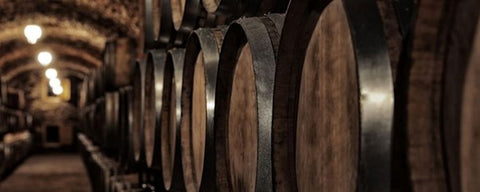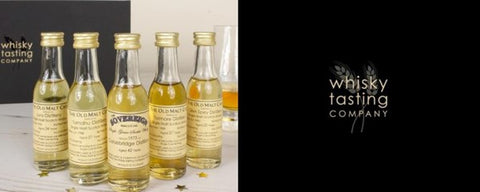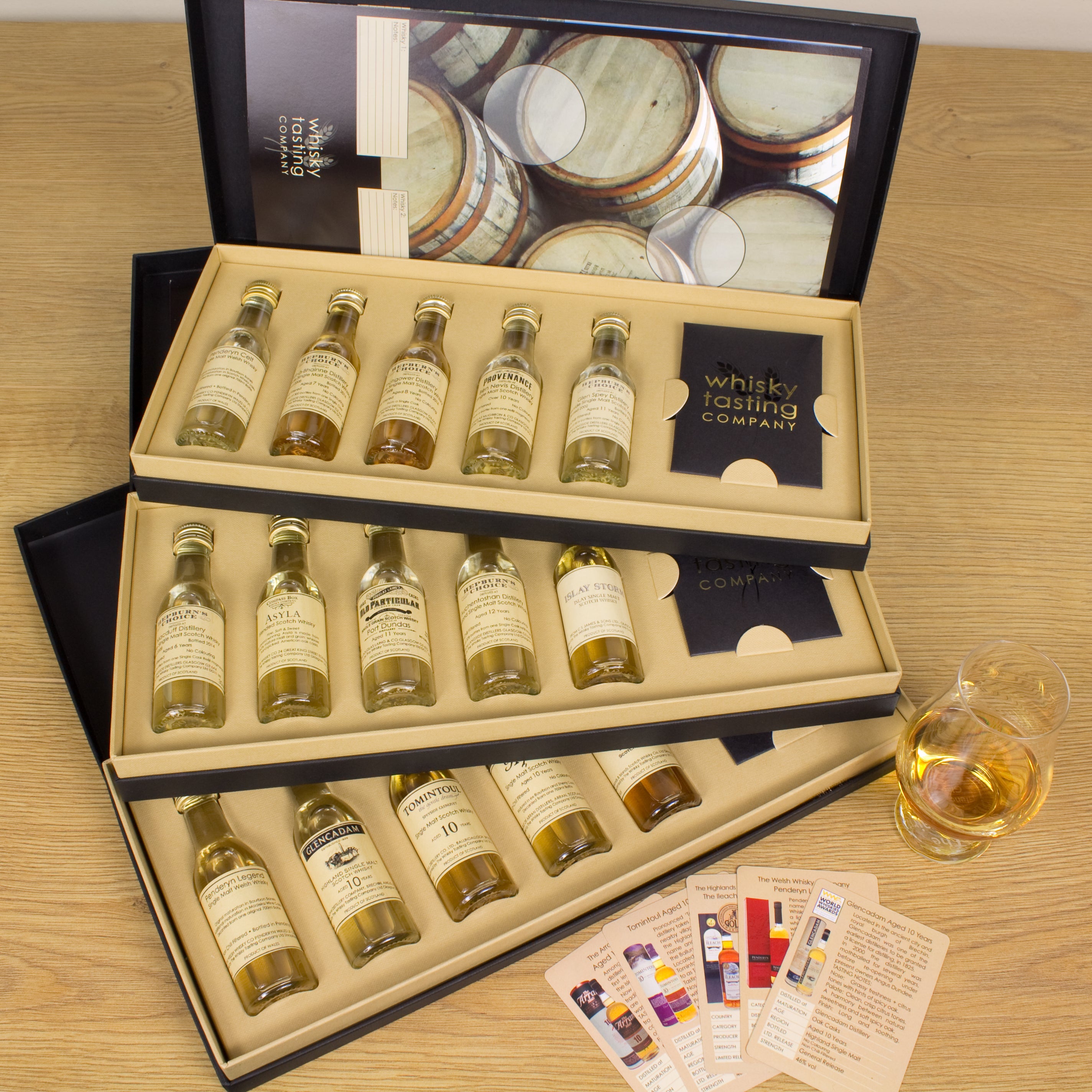The whisky ageing process: What you need to know

All good things come to those who wait.
An adage that’s certainly true when it comes to whisky!
You see, the key to whisky’s unique flavour is patience. And to be enjoyed at its best, whisky must be allowed time to age.
Wondering how this ageing process works, how it impacts the flavour and, crucially, how long you need to wait?
Read on to discover everything you need to know about the whisky ageing process (and don’t worry, we’ll make it quick!).
How does the whisky ageing process work?
First things first, whisky is distilled.
The process of distilling is actually pretty quick - only taking a few days - but pour a glass straight away and it wouldn’t resemble the spirit we all know and love.
At this point, not only would it taste different, it would also be a clear liquid, similar to the likes of vodka or gin in appearance as opposed to displaying the golden hues associated with whisky.
Wondering how the colour and taste change? It happens during the next, and most crucial, stage in the process - being stored in wooden barrels.
In fact, to be formally considered a whisky, the spirit must be aged in wooden barrels. The length of this ‘ageing process’ determines the overall flavour profile as the wood of the barrels interacts with the ingredients within, gradually altering flavour over time.
It’s generally considered that the older the whisky, the greater the complexity of the taste. And given the increased time it takes to produce, they usually cost more too.
An important point to remember here though, is that whiskies only age in casks. Once bottled, the clock stops – so a whisky aged for 10 years, will remain a 10-year-old whisky even if it sits gathering dust at the back of cupboard for a further 20 years.

Why is whisky aged in barrels?
Barrels play a crucial role in whisky ageing.
Firstly, it’s the barrel that fine-tunes the taste. A whisky ageing barrel helps to filter out harsh, unwanted flavours and the ‘oakiness’ often referred to when discussing the taste of whisky, comes from the type and density of the wood used.
How and where barrels are stored also has an impact - Scottish whiskies take longer to age due to the colder climate and barrels housed closer to the ground will be cooler than those on shelves, taking longer to release flavours.
But it’s not just taste that is altered. The wood of the barrel also affects the colour of the whisky – and the price.
Whilst it is possible for a whisky to be ‘over-aged’, resulting in the wood flavouring overpowering the grains, it is generally considered that the higher the quality of the cask, and the longer the ageing process, the more superior the whisky.
What is the best age for a whisky?
All Scotch whisky must be aged for at least 3 years to be legally marketed as a Scotch. If the Scotch is a blend, then the age stated on the bottle will refer to the ‘youngest’ whisky used.
In terms of the ‘best’ age, around the 12-year mark is popular. This is largely due to the fact that 12 years offers a good balance between ageing and price.
Malt whiskies mature more slowly than grain and are best enjoyed between 5 and 10 years old.
How old is too old?
Some of the oldest whiskies have been aged for over 70 years and cost thousands of pounds. But whilst age is usually an indication of quality, it’s not always the case. A whisky aged for too long in a barrel of poor quality can result in a bitter or ashy taste.
The official ageing process stops once whiskies are bottled, but what about shelf-life?
You won’t find an expiry date on whisky, as an old bottle won’t make you ill - but the carefully curated flavour will deteriorate over time once it’s been opened.
Stored correctly and away from fluctuating temperature and daylight, a sealed whisky will remain in excellent condition for many years – decades even. But once the seal has been broken it’s best enjoyed as soon as possible.
For more on this read our recent blog ‘Does whisky expire?’.

Discover whiskies aged to perfection
With subscriptions and gift sets from Whisky Tasting Company, not only can you compare flavours of aged Scotch against younger varieties, but our miniature bottles are the ideal size to ensure you open and experience the flavours exactly as they are meant to be enjoyed.
Our old and rare scotch whisky sets contain whiskies that have aged for between 21 and 34 years, but we think you’ve been patient enough – all our whisky sets are delivered, for free, within just 2-3 days.
To start experiencing the effect whisky age can have on flavour, why not place an order today? Or if you have any questions about the whisky ageing process, please don’t hesitate to get in touch with the team.






